
Saugat Bolakhe
Science Writing Intern, Spring 2024
Saugat Bolakhe is a spring 2024 intern for Science News. He earned his undergraduate degree in zoology from Tribhuvan University in Nepal and a graduate degree in health and science journalism from the Craig Newmark Graduate School at CUNY.

Trustworthy journalism comes at a price.
Scientists and journalists share a core belief in questioning, observing and verifying to reach the truth. Science News reports on crucial research and discovery across science disciplines. We need your financial support to make it happen – every contribution makes a difference.
All Stories by Saugat Bolakhe
-
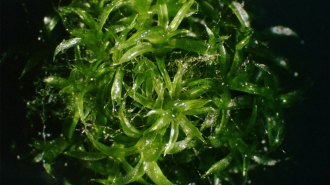 Plants
PlantsA newly discovered gene helped this moss defy gravity
A gene called IBSH1 helped spreading earthmoss thrive at high gravity, hinting at how plants adapted to photosynthesize on land.
-
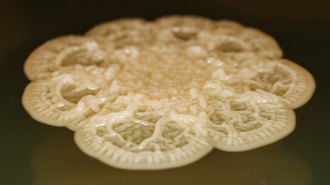 Microbes
MicrobesSome bacteria in your mouth can divide into as many as 14 cells at once
The filamentous bacterium Corynebacterium matruchotii has a unique reproductive strategy that might allow it to claim territory quickly.
-
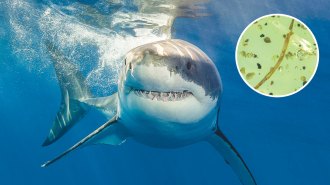 Paleontology
PaleontologyHow did an ancient shark parasite end up fossilized in tree resin?
A worm preserved in 99-million-year-old amber resembles modern flatworms in shark intestines. The rare finding has scientists stumped.
-
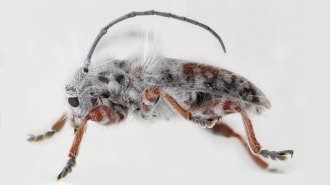 Animals
AnimalsThis newfound longhorn beetle species is unusually fluffy
Discovered in Australia, the beetle is covered in whitish hairs and has distinctive eye lobes, antennae and leg shapes.
-
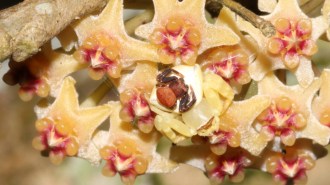 Animals
AnimalsIn a first, these crab spiders appear to collaborate, creating camouflage
Scientists found a pair of mating crab spiders blending in with a flower. The report may be the first known case of cooperative camouflage in spiders.
-
 Space
SpaceHow a sugar acid crucial for life could have formed in interstellar clouds
Computer calculations and lab experiments have revealed a possible mechanism for the creation of glyceric acid, which has been seen in meteorites.
-
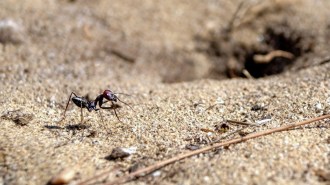 Neuroscience
NeuroscienceHere’s how magnetic fields shape desert ants’ brains
Exposure to a tweaked magnetic field scrambled desert ants’ efforts to learn where home is — and affected neuron connections in a key part of the brain.
-
 Health & Medicine
Health & MedicineThe U.S. now has a drug for severe frostbite. How does it work?
Iloprost has been shown to prevent the need to amputate frozen fingers and toes. It’s now approved for use to treat severe frostbite in the U.S.
-
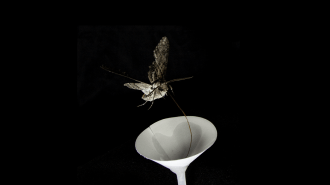 Environment
EnvironmentHow air pollution may make it harder for pollinators to find flowers
Certain air pollutants that build up at night can break down the same fragrance molecules that attract pollinators like hawk moths to primroses.
-
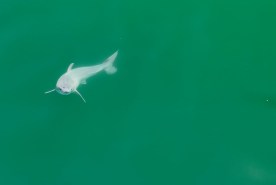 Animals
AnimalsDoes this drone image show a newborn white shark? Experts aren’t sure
If a claim of the first-ever sighting of a newborn white shark holds, it could help solve a mystery of where adult white sharks give birth.